I was as surprised as anyone when I fell in love with American Housewife. A charming comedy about a middle-class family in upper-class Westport, Conn., at first blush it seems like the type of traditional family sitcom relegated to a bygone era. But buoyed by a hilarious, down-to-earth performance by lead Katy Mixon as the brash stay-at-home mom Katie Otto and a charming supporting cast, the show quickly became my go-to, feel-good obsession.
Unfortunately, I now have to say goodbye to the Ottos and their wealthy and eccentric neighbors. ABC announced last week that it would not renew American Housewife, making the recently concluded fifth season the show’s last. Following a string of cast changes, accusations of racism behind the scenes, changing time slots, and the pandemic—all of which hindered the show over the past year—it is not an entirely unexpected decision. But American Housewife was once again finding its footing, which always remained steady, if not solid. This, and the unresolved storylines–including the two massive cliffhangers the show ended on: Katie’s pregnancy and Taylor’s engagement–make the cancellation of this unique spin on the traditional family sitcom a bitter pill to swallow.
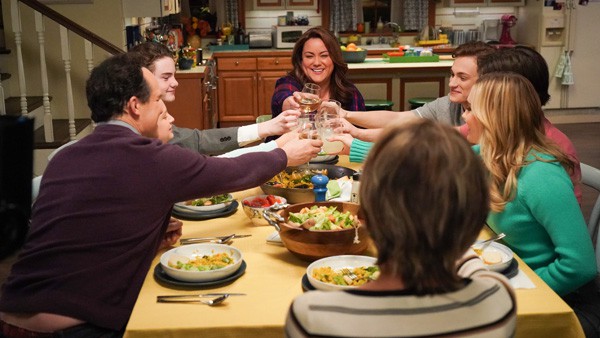
American Housewife was never prestige television. It was not a critical darling, nor was it a ratings smash. Like beleaguered mom Katie, played by Katy Mixon, it was by many measures ordinary and middling. The Ottos never fit in to tony Westport. They were too middle class, too provincial, and Katie was too fat. Similarly, American Housewife never really fit into the current TV landscape. It was a little too Everybody Loves Raymond in a Modern Family world.
Paradoxically, that was what made it so refreshing and relatable. It didn’t try too hard to be anything other than what it was–a good family sitcom with lovable characters and gentle humor. There was no pretense, no aspirations to greatness, no message. The Ottos were just there to entertain you for 30 minutes.
I first watched American Housewife in the summer of 2017, binging its first season on Hulu having watched everything else that interested me. I did not expect much but was delighted by the blunt and abrasive humor of Katie and the adorable nerdiness of her husband, university professor Greg (Diedrich Bader). The interplay between Mixon and Bader (who I was delighted to see, having grown up with him on The Drew Carey Show) was as effortless and entertaining as it was adorable and amusing.
A recurring theme throughout the series is that Katie used to be cool, but that having kids made her as square as her dorky husband. In less capable hands this would be a tired cliché, but Mixon and Bader played it with a subtle hilarity. In one memorable scene, Katie and Greg wake up with what can only be described as the worst sitcom hangover since Ross and Rachel eloped in Vegas.
“I got a pedicure,” Greg says, looking at his toes. “Oh honey,” Katie answers, with a glint in her eye as she motions towards her neck, “that’s not all you got.” As Greg rushes to the bathroom to look in the mirror, she proudly declares, “I haven’t given a hickey since high school!”
A lot of us viewers of a certain age can relate to not being able to drink like we used to. Many more will be able to relate to the failure to live up to the high expectations of our younger selves, even in small ways. Having turned 30 the year American Housewife premiered, Katie’s bemoaning of her lost youth was relatable, but it could have also been pathetic. With Mixon’s comic timing and sarcastic delivery, though, it was never not amusing.
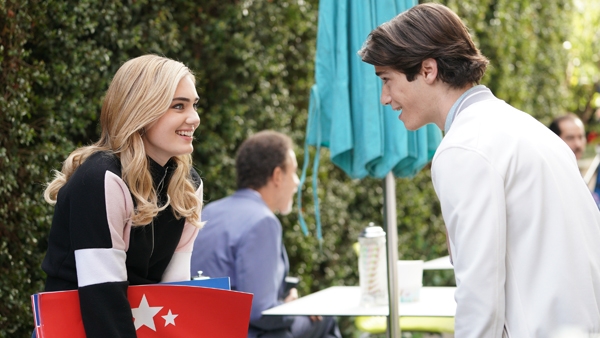
Equally as entertaining were the Ottos’ three children: dimwitted oldest daughter Taylor (Meg Donnelly), materialistic and greedy son Oliver (Daniel DiMaggio), and quirky, OCD-afflicted youngest daughter Anna-Kat (Julia Butters in Seasons 1–4; Giselle Eisenberg in Season 5). Each kid was written with a distinct personality and played by talented and nuanced young actors. While it was Butters’ Anna-Kat who often stole the show with her witty one-liners and bizarre behavior, Donnelly provided the show’s beating heart and gave some of the most affecting performances as Taylor dealt with the pressures of growing up.
It was DiMaggio’s Oliver, though, who truly kept me hooked. A modern take on Alex P. Keaton, I loved watching Oliver scheme to get rich, learn a lesson in the dangers of greed, and discover his heart as the series progressed. It was a relatable story for anyone with ambitions for a life greater than what they have but whose dreams are hampered by income inequality. While the Ottos had significantly more money than my working-class family did growing up, it nonetheless spoke to my own experience realizing there were certain avenues closed to me because I was not born with a silver spoon in my mouth.
But what really made Oliver so engaging and lovable was his relationship with best friend Cooper Bradford (Logan Pepper). A recurring trope throughout the series is Katie wishing that Oliver is gay. When he meets Cooper, the richest boy in Westport, Katie hopes that her son has hit pay dirt. Throughout the series, Oliver insists that he is straight (Cooper is more ambiguous), even dating a couple girls. But fans latched on to the pairing, shipping them on social media and making fan videos about their supposed romance. Many, like me, hoped the two would end up together.
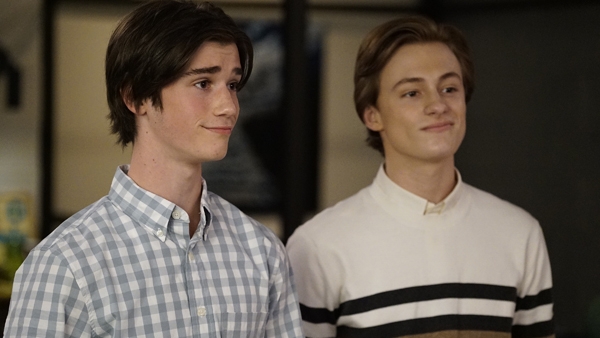
This was frequently toyed at within the show, such as in the third episode of the fifth season. After Cooper moves in with the Ottos, he and Oliver begin acting like a married couple. Cooper becomes jealous when Oliver begins spending more time with Trevor, another kid from school, while Oliver is annoyed that Cooper won’t pick up his shoes. Witnessing the argument, Greg worries there is “trouble in paradise,” while Katie comments that “the honeymoon is over.” Later in the episode when Katie and Greg bristle at allowing Taylor’s boyfriend to stay over, she says “I don’t see the problem, you let Oliver have his boyfriend sleep over.” Rather than argue, Oliver matter-of-factly says “let’s go Cooper.”
This queerbaiting toed the line between funny and offensive, always falling on the former side of it because there was the hope that eventually Oliver and Cooper would recognize their feelings for one another. With the cancellation of the show, that hope is forever squashed. It is a frustrating and disappointing disservice to fans, who spent years waiting for the romantic payoff.
Fans may deserve better from the network, but there were plenty of times where they deserved better from the show itself. More time could have allowed the show to correct some of what it got wrong. The writers never knew what to do with Katie’s two best friends, the only two characters of color in its main cast, who served as little more than sounding boards to Katie’s problems. The departure of cast member Carly Hughes (who played Angela) and her subsequent accusations of a “toxic” work environment and discrimination behind the scenes further tarnished the show’s image and legacy. Ali Wong, always rip-roaringly hilarious as Doris, similarly ended up in a much-diminished capacity in season five, which is saying a lot considering she was already little more than window dressing–a disservice to both Wong, who is one of the most talented comics in Hollywood, and to viewers.
Yet season five looked like it was recognizing the problems it had with its characters of color. While Hughes left and Wong looked to be on her way out, new arrivals Jake Choi and Holly Robinson Peete were delightful additions. In one abbreviated season their JD and Tami felt more fully realized than Angela and Doris ever did. Tami’s bratty daughter proved a hilarious foil to Katie and helped flesh out Tami’s character, while JD’s quest to become a single gay father had the potential to be a fascinating and timely exploration of the changing realities of parenthood. It looked like the show would finally learn from the mistakes it made with Katie’s friends.
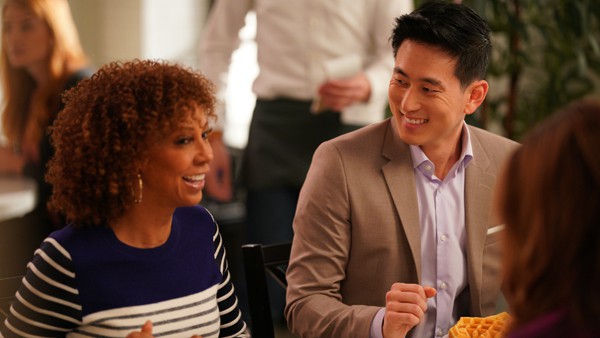
Now we’ll never know. The challenges of Season 5 proved too much, and the finale set a new ratings low for the show. Unfortunately, that is the note on which American Housewife takes its final curtain call. That the network decided even that was not worth the money to greenlight a sixth season, even one capped at 13 episodes like Season 5 was, is incredibly unfair to the cast and crew as well as the fans who stuck by this little show with the big heart for five years. We deserved to have loose ends tied up and a cathartic farewell to the Ottos.
Instead, we are left with only the legacy of American Housewife and wistful thoughts of what might have been a successful second life following a tumultuous season. This show put a new and funny spin on what is at this point a tired concept, and that was the secret to its success. American Housewife deftly adapted the formula of a loving but abrasive mom and wife set by Roseanne, combined it with the quirky kids of Home Improvement, set in a fish-out-of-water class story reminiscent of the Beverly Hillbillies, and made a sitcom that was distinctly modern but rooted in the best traditions of American situation comedy. I’ll miss it.
![]()
More from Skylar Baker-Jordan:
The End of Kim’s Convenience is a loss for TV Culture at Large
It’s a Sin Makes Britain’s AIDS Crisis Heartbreakingly Personal


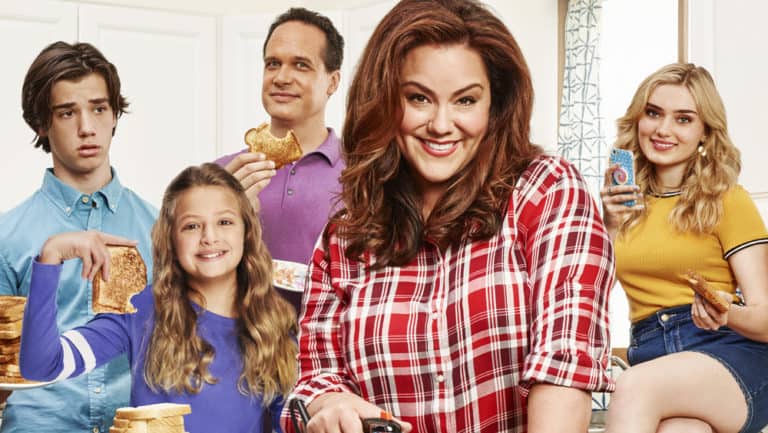
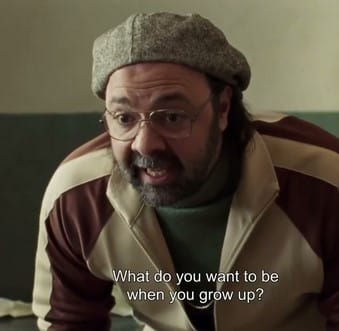

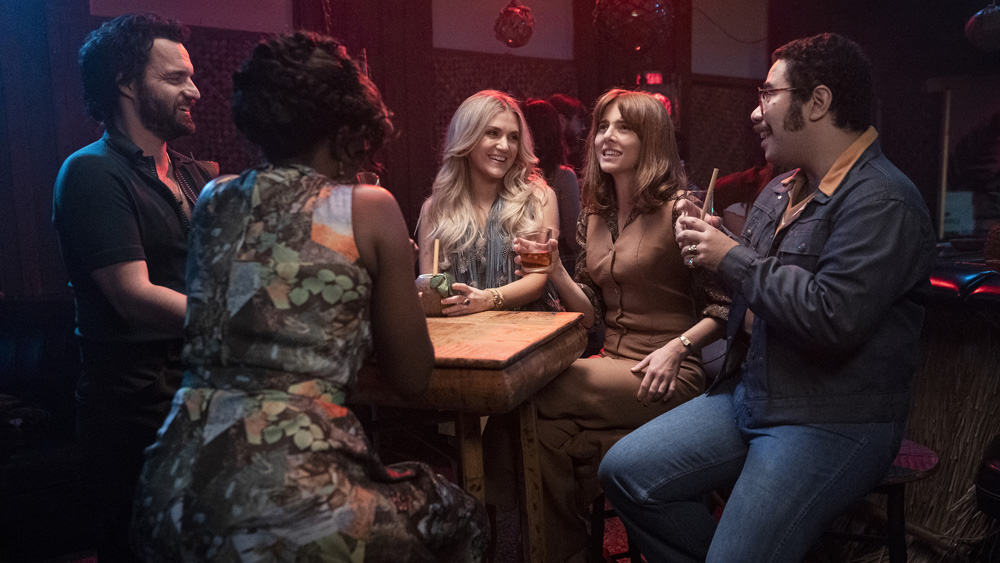
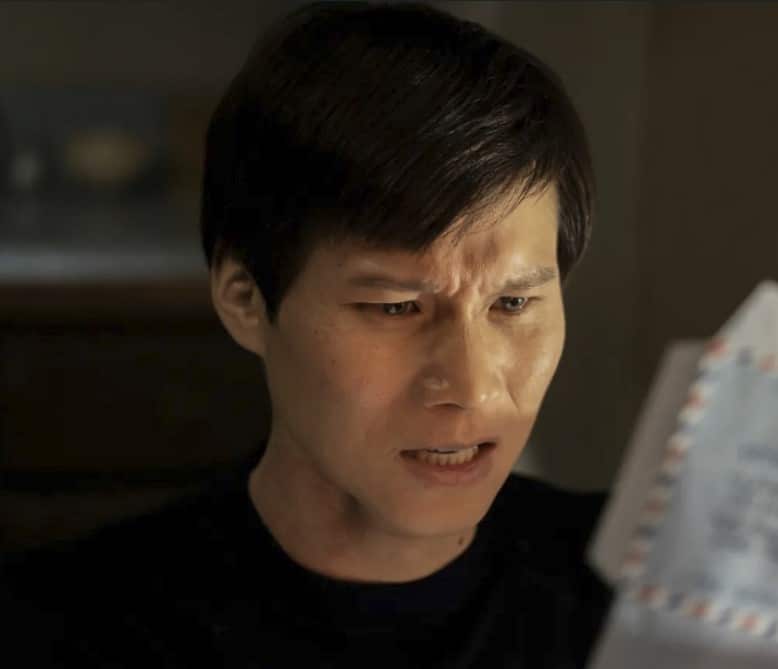


1 thought on “<i>American Housewife</i> and Its Fans Deserved More”
Great article! Loved this show, but when a show returns mid season, pandemic aside, with only 13 episodes the sitcom grave has basically been dug. The Ottos will be missed, especially since we, as the viewers, weren’t even given the opportunity to grieve given their sudden abrupt banishment from the network… well that was as soon as they reach their golden 100 episode benchmark in order to be able to sell the show into syndication.
Comments are closed.